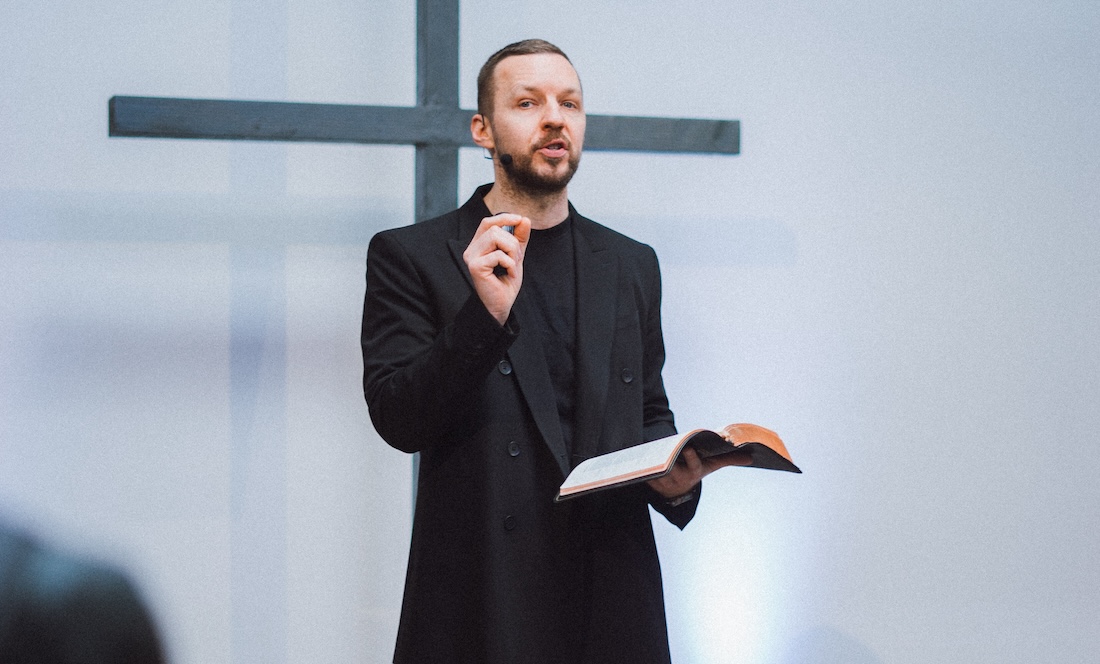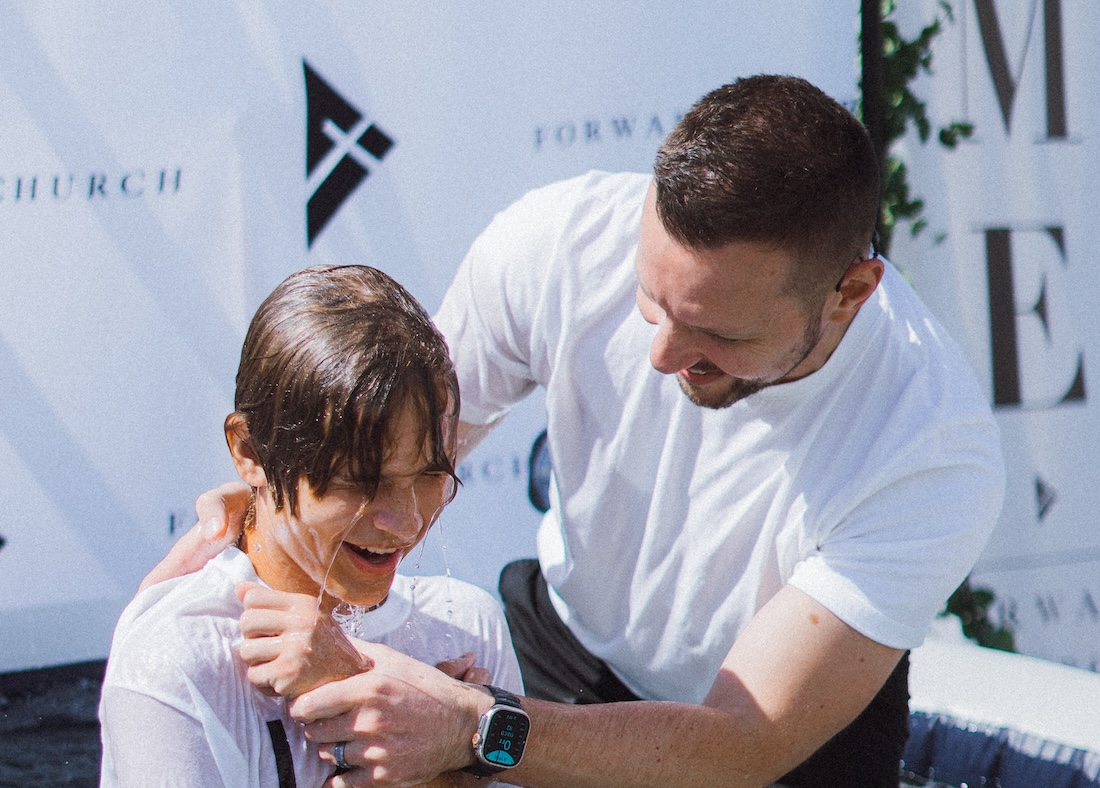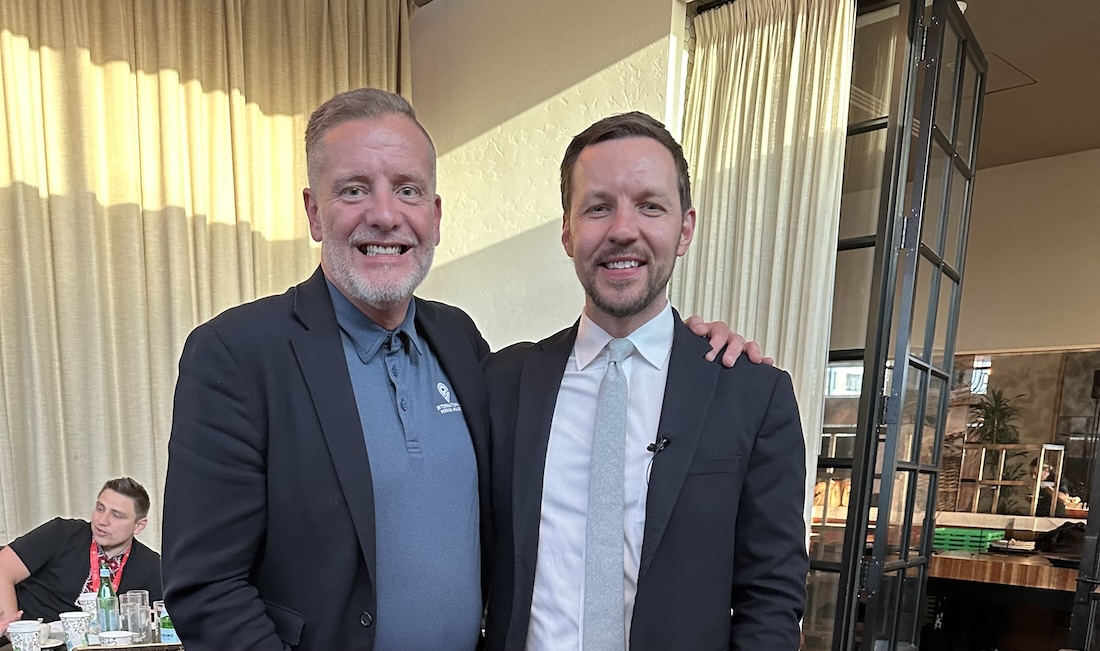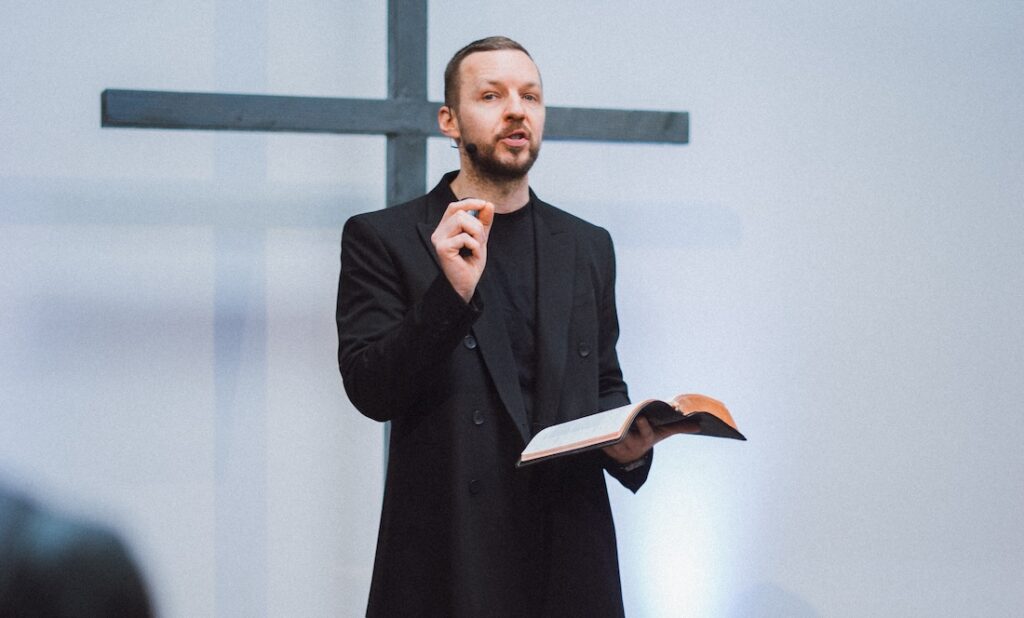IRVINE, California — Bogdan Kipko immigrated to the United States, arriving in Seattle with his parents in 1992 where a Baptist church provided space for his family and others to worship. Thirty years later, God has used Kipko to launch a church planting movement among Slavs who are dispersed throughout North America.
Kipko planted Forward Church in Irvine, Calif., through Send Network and began connecting with Slavic pastors and ministry leaders throughout North America to point them to the resources Send Network utilizes to help churches plant churches.

“About two years into our plant, I really felt like God called me to reach out to many of my Slavic pastor friends in the Slavic diaspora all over the U.S. and Canada who wanted to plant churches, but they really had no pathway, no strategy, no vision,” Kipko said.
As Kipko went through Send Network’s process—from assessment to the systems that facilitate training, coaching and care for church planting missionaries—he wanted to see others tap into the church planting movement.
“What I experienced was absolutely fantastic,” said Kipko. “There’s no way somebody can plant a church on their own. They’ve got to have a brotherhood and a network to run with.”
Kipko connected with his local church planting catalysts and began networking with friends and ministry colleagues. He said there are approximately 70 Slavic churches or pastors who have expressed interest in starting new churches.
“We did our first ever Slavic assessment, and the three guys that went through all passed,” Kipko said. “Two of them are in Sacramento. One of them is in the Bay Area.”

And that’s just the start. Kipko has been able to connect with leaders on the East Coast, Florida and the Northwest who have their sights set on church planting through Send Network.
“I never imagined it to be this way. God always does much more than you can ask or imagine,” said Kipko, quoting Ephesians 3:20.
Slavic immigration into North America has primarily come in waves, Kipko said, with the first taking place in the 1960s, the next came in the 1980s and 1990s after the fall of the Iron Curtain and the demise of the Soviet Union. Now, there has been another influx since Russia invaded Ukraine in 2022.
“There’s not a single Slavic, Russian or Ukrainian church in America, or anywhere else for that matter, that the war didn’t impact,” Kipko said. “A lot of the pastors I’ve worked with have had to pivot. They’ve had to figure out how to do grief counseling, and they’re struggling with PTSD and their people are struggling with PTSD from the war.”
As Kipko established these connections, he helped launch what is believed to be a first of its kind Slavic fellowship dinner that took place during the 2024 Southern Baptist Convention (SBC) Annual Meeting in Indianapolis.
“This inaugural Slavic fellowship says Southern Baptists are still focused on the Great Commission,” said Pete Ramirez, executive director of the California Southern Baptist Convention, after attending the meeting. “As the Lord continues to bring the nations to the States, we still need to engage with the different ethnic groups to better facilitate the work we do to the outermost parts of the earth.”
John Barnett serves the International Mission Board (IMB) and NAMB as director of diaspora mobilization attended the fellowship.
Kipko “wanted the churches to go deeper with the SBC on both levels, both with NAMB and IMB and just really in a passion for church planting nationwide that would then overflow into Canada and beyond among the nations,” said Barnett. “I thought it was a powerful meeting and had a clear vision, but I really loved how they were taking hold of going beyond their own affinity and taking hold of the Great Commission.”

Kipko gave credit to God for favoring his efforts of connecting Slavic pastors for the purposes of fellowship and church planting while underscoring the fact that he is leading a normative-sized church of roughly 100 people.
“God mobilizes and uses completely unknown, obscure people. That’s me,” said Kipko. “We’re not a megachurch. We’re just a small church in Irvine faithfully preaching the gospel, and God just put this on my heart.”
The rails of cooperation within the SBC have helped him and his church begin a movement among Slavs that would not have been easy for them to do on their own, and Send Network has provided that group with the expertise and fellowship among Southern Baptist pastors and ministry leaders to fuel their efforts to start new churches.
Along with his passion for starting new churches among Slavic people, Kipko also encouraged Southern Baptist churches to minister to the Ukrainians, Russians and other Slavic peoples in their own communities if they are not already connected to “a Bible believing, Jesus loving church.”
“I want to increase the awareness level,” said Kipko. “They all went through a very traumatic time, especially the ones who immigrated in the last three years since the war began.”
“I’m very grateful to God for the SBC and Send Network,” he said, “because without them, I don’t know where many of these pastors would be.”
Published August 13, 2024
